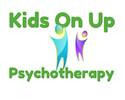Helpful Resources
|
Autism
Navigating Love and Autism From the NY Times, this article describes a young couple negotiating the complications of a romantic relationship though the lens of autism. Learning Social Rules Temple Grandin, the self-described "anthropologist from Mars," is a writer, teacher, speaker, and engineer with autism. She created these four categories of social rules in order to help her understand the strange ways of her fellow earthlings. Excerpt from the book, Parenting Your Asperger Child There is no single "look" or presentation for a child with autism. The author describes autism "subtypes" related to how kids experience and deal with anxiety. Sleep and Autism This article describes difficulties and strategies related to forming healthy sleep habits. Lying and Autism: A Cognitive Milestone Effective lying requires social perspective taking, so when a child with autism pulls one over on you, you might (quietly) celebrate! Autism and Science Fiction A man with autism describes why he and so many other people on the spectrum seem drawn to this genre. Is it Autism or ADHD? Symptoms of these conditions often overlap, and "higher functioning" kids especially might be diagnosed with ADHD before receiving an Autism diagnosis. |
Attention Deficit Hyperactivity Disorder (ADHD)
|
COVID-19
News As Medication
Information is like medicine for anxiety - the correct type in the correct dose can be helpful. But beware: opportunities to overdose on bad information abound.
Post-Pandemic Parenting
66% of working parents are experiencing post-pandemic burnout. This burnout is linked to depression and anxiety, as well as how you view and parent your child. Seeking support, increasing resources, and decreasing stress all can lower feelings of burnout.
Other Topics of Interest
'Coming Out' as Anxious
From the NY Times, the author describes his ongoing process of managing anxiety--paradoxically--by embracing it.
Video Gaming and the Internet Feels Really Good
One theory of motivation that seems to explain why gaming and the internet can so easily pull us in and push out other activities. (Pardon my scribbles in the margins.)
Old-Fashioned Play Builds Serious Skills
Turns out play is not just for fun or to pass the time; rather, it is essential to kids's cognitive and emotional development.
Mental Health: What's Normal, What's Not
When does unusual behavior become a diagnosis? The answer does not involve perfect math, but a logical system exists.
Why Adolescence Is More Brutal For Parents Then Teenagers
From New York Magazine: “Most adolescents seem to be going through life in a very pleasant haze... If you look at the narrative, it’s ‘My teenager who’s driving me crazy.'"
www.KidsHealth.org
Good, reliable and easy to search articles on mental health (and physical health too), with separate sections for kids, teens and parents.
'Coming Out' as Anxious
From the NY Times, the author describes his ongoing process of managing anxiety--paradoxically--by embracing it.
Video Gaming and the Internet Feels Really Good
One theory of motivation that seems to explain why gaming and the internet can so easily pull us in and push out other activities. (Pardon my scribbles in the margins.)
Old-Fashioned Play Builds Serious Skills
Turns out play is not just for fun or to pass the time; rather, it is essential to kids's cognitive and emotional development.
Mental Health: What's Normal, What's Not
When does unusual behavior become a diagnosis? The answer does not involve perfect math, but a logical system exists.
Why Adolescence Is More Brutal For Parents Then Teenagers
From New York Magazine: “Most adolescents seem to be going through life in a very pleasant haze... If you look at the narrative, it’s ‘My teenager who’s driving me crazy.'"
www.KidsHealth.org
Good, reliable and easy to search articles on mental health (and physical health too), with separate sections for kids, teens and parents.

